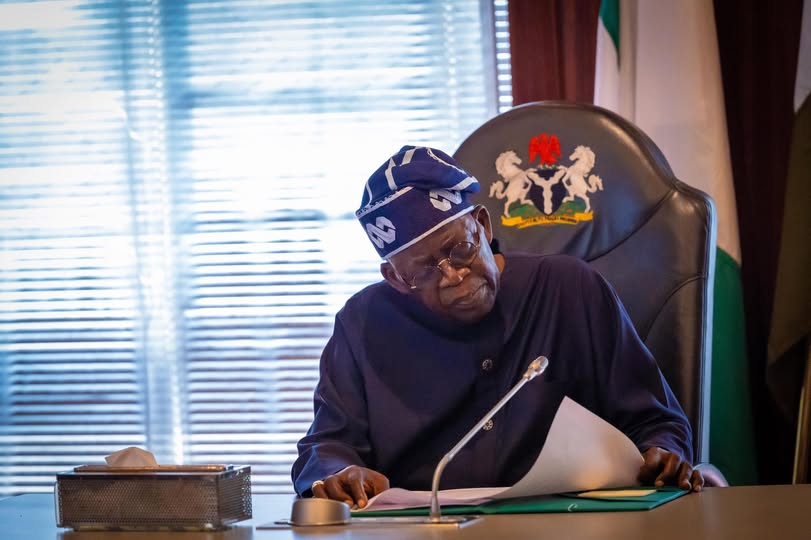In a historic address to a joint session of the National Assembly, President Bola Ahmed Tinubu delivered a powerful Democracy Day speech, calling for national unity, deeper democratic commitment, and economic reform, while also honouring past heroes of Nigeria’s democratic struggle.
Standing before lawmakers in the hallowed chambers of the National Assembly, President Tinubu reflected on the long and often painful journey Nigeria has travelled since the return to democratic rule in 1999. “My heart stirred with a blend of accomplishment and resolve,” he said. “Democracy has risen from the ashes of military rule to become our only path forward.”
Celebrating June 12 and Honouring Democracy Heroes
President Tinubu reaffirmed the significance of June 12 as Nigeria’s official Democracy Day, paying special tribute to Chief MKO Abiola, the widely acknowledged winner of the annulled 1993 presidential election. He lauded former President Muhammadu Buhari for formally recognising Abiola and enshrining June 12 in national memory.
However, Tinubu emphasized that democracy’s triumph was a collective effort, naming a broad spectrum of activists, journalists, and politicians—some murdered or jailed—who stood against military oppression. “The struggle was never the province of any one group,” he noted. “It was pan-Nigerian, and our democracy must continue to be.”
Among those honoured posthumously were Alhaja Kudirat Abiola, Shehu Musa Yar’Adua, Prof. Humphrey Nwosu, Rear Admiral Ndubuisi Kanu, and journalist Bagauda Kaltho. Living honorees include Nobel Laureate Prof. Wole Soyinka, Bishop Matthew Hassan Kukah, and veteran journalist Uncle Sam Amuka Pemu.
President Tinubu also announced the posthumous pardon of environmental activist Ken Saro-Wiwa and the other members of the “Ogoni Nine,” describing it as “an act of healing and national reconciliation.”
A Firm Rejection of One-Party Rule
Responding to allegations that the ruling All Progressives Congress (APC) is steering the country towards one-party dominance, President Tinubu strongly dismissed the notion. “A one-party state is not in the offing, nor should it ever be,” he declared.
Citing his own political history and struggles against a similar attempt in 2003, he reminded critics that political pluralism is vital to national health. “Our efforts must never be to eliminate political competition but to make that competition work for Nigeria,” he added, welcoming defectors from opposition parties while urging other political actors to put their internal affairs in order.
Economic Reforms and Progress
Turning to the economy, Tinubu touted a series of structural reforms and economic gains. Nigeria’s GDP, he said, grew by 3.4% in 2024 with Q4 reaching 4.6%—the highest in over a decade. Inflation is easing, the naira has stabilized, and foreign reserves have surged fivefold.
He credited these gains to initiatives like the Nigerian Consumer Credit Corporation (CREDICORP), which has helped over 100,000 Nigerians access affordable credit. A new youth-focused credit scheme is set to launch in July, targeting 400,000 young Nigerians, including NYSC members.
Other highlights include:
- Laying of nationwide fibre optic cables to bridge the digital divide.
- Tax reforms to support small businesses and improve transparency.
- Investment in industrial infrastructure, including roads, ports, rail, and power.
- Launch of the National Credit Guarantee Company with ₦100 billion in capital.
“Our goal remains 7% growth driven by a stronger manufacturing base and food sovereignty,” Tinubu stated. “We are building a rational economy where big investment decisions can now be made confidently.”
Security, Civil Liberties, and Governance
On national security, the president praised ongoing military efforts to secure the country, noting improvements in inter-agency coordination and safer highways. He called for continued support for the armed forces, emphasizing their role in defending Nigeria’s democracy.
At the same time, Tinubu urged lawmakers to guard civil liberties and tolerate dissent. “Democracy requires tolerance—even for harsh words and stinging insults,” he said. “Call me names, and I will still call upon democracy to defend your right to do so.”
He also praised the National Assembly’s historic role in defending democracy—citing its rejection of a third-term agenda in 2006 and its invocation of the doctrine of necessity in 2010 to transfer power to then-Vice President Goodluck Jonathan.
Closing Vision: A Call to Renewed National Purpose
As Nigeria marks 26 years of uninterrupted democracy, Tinubu urged citizens to recommit to the values of June 12—freedom, justice, and accountable governance.
“Our democracy is not perfect, but it is alive. Our dream of a prosperous, happy nation is still within reach,” he declared. “Let us rededicate ourselves to the ideals of a just society where no one is oppressed.”
President Tinubu closed the address by decorating National Assembly presiding officers with national honours conferred earlier, and by reaffirming his commitment to working hand-in-hand with lawmakers for the good of all Nigerians.
“Happy Democracy Day,” he concluded. “May God bless the Federal Republic of Nigeria and protect our troops.”



